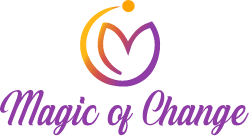- Have any questions?
- +91 90363 62302/+91 99401 28013/+91 96194 11010

Every morning, Dev wakes up determined to start his day right. But as he scrolls through social media in bed, 10 minutes turn into an hour. The pattern repeats daily, leaving him rushed, stressed, and frustrated before his day even begins. Dev knows this habit of endless scrolling is unproductive, but breaking free feels impossible.
Sound familiar? Whether it’s doom-scrolling, snacking late at night, or procrastinating, bad habits can creep into our lives and hold us back. The good news is that NLP provides powerful habit change techniques for breaking bad habits and replacing them with healthier behaviors.
A Step-by-Step Guide to Breaking Bad Habits
The process of breaking bad habits isn’t about sheer willpower; it’s about understanding and rewiring your mind. Here’s a step-by-step approach based on Neuro-Linguistic Programming steps to help you break free from unproductive habits.
Step 1: Recognize the Habit’s Structure
Every habit has three elements: cue, routine, and reward. But for that particular habit to break, you must know what triggers it, which actions are taken, and what you get in return.
In Dev’s case:
- Cue: Waking up and reaching out for his phone
- Routine: Scrolls through social media for an hour
- Reward: A fleeting distraction or bit of entertainment.
Write these down for your habit to gain clarity on what you’re dealing with.
Step 2: Set a Clear Intention
NLP for habits emphasizes focusing on what you want to achieve rather than just avoiding the bad habit. Replace “I need to stop scrolling” with “I want to start my day energized and focused.” A clear, positive intention makes change more achievable.
For Dev, that might be determining to exercise in the morning or meditate/planning instead of scrolling in bed.
Step 3: Come up with an Intervention Plan
Understand your habit loop. Add a “pattern interrupt” before the habit to stop the routine from becoming active. Example
- Move the cell phone off your bedside.
- Wake-up using an alarm clock, rather than a phone.
- Set a visible reminder, like a note on your nightstand, to trigger your new routine
These disruptions force you to consciously choose your next action instead of falling into autopilot.
Step 4: Replace the Routine
One of the most effective habit change techniques is replacing the old routine with a new, healthier one that delivers a similar reward.
For Dev, instead of reaching for his phone, he would drink a glass of water, stretch, or write in a journal. Reward: He will be refreshed and can feel accomplished to start the day off on the right track.
The idea is consistency. Repetition rewires your brain to make the new behavior second nature.
Step 5: Use these Techniques
NLP provides unique tools for changing habits, which include:
- Chunking Down: Break the habit into smaller, manageable parts to tackle one aspect at a time.
- Swish Patterns: Shift your mental association of the habit’s reward to something less desirable while reinforcing the benefits of the new habit.
For Dev, imagining the stress caused by rushing through his morning routine can weaken his attachment to scrolling, while visualizing the peace of a phone-free morning can reinforce the new behavior.
Step 6: Celebrate Progress
Celebrating small wins is an essential part of using NLP for habits to ensure lasting change. This is a feedback loop that strengthens your motivation. Dev might treat himself to his favorite podcast or a tasty breakfast after he has completed his morning routine without scrolling.
Step 7: Stay Adaptable
Adaptability is a crucial part of Neuro-Linguistic Programming steps, ensuring that you refine your approach as needed. But you should start all over with the steps; fine-tune your approach; and continue, for persistence marks growth.
Breaking that habit of scrolling as Dev’s does or any of yours requires more than just self-awareness. You need intentions and constant practice. With the help of the structured techniques under NLP, these challenges transform into opportunities to grow. Take action now. Your future self will thank you!






